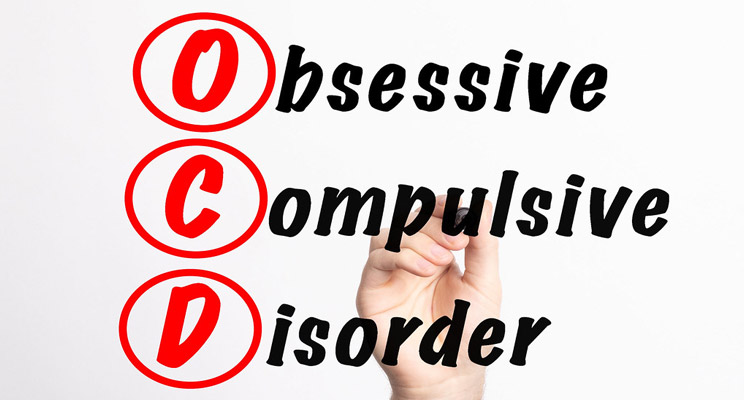Obsessive-compulsive disorder (OCD) is an anxiety disorder in which the person suffers from repeated thoughts and feels compelled to perform ritualized behavior. These thoughts and behaviors are uncontrollable, thought the person may try to resist or stop them. most people suffering from OCD do realize that their obsessive thoughts and compulsive behaviors are irrational, still they are unable to resist them and break free. Like a needle getting stuck on an old record, obsessive-compulsive disorder (OCD) causes the brain to get stuck on a particular thought or urge. For example, the person might check the door twenty times to make sure it is really locked, or repeat some religious phrase in his mind in “the right manner” to make himself/herself satisfied. Some people might have recurrent images which they find disturbing.
The person might try to resist the urge to perform the compulsive behavior. Compulsive or neutralizing behaviors are usually carried out in a stereotypical way or according to the idiosyncratically defined “rules”. Carrying out compulsive or neutralizing behavior leads to temporary anxiety relief or the expectation that had ritualizing not been carried out, anxiety would have increased.
Signs- Obsessive Behavior
- Fear of being contaminated by germs or dirt or contaminating others.
- Fear of causing harm to yourself or others.
- Intrusive sexually explicit or violent thoughts and images.
- Excessive focus on religious or moral ideas.
- Fear of losing or not having things you might need.
- Order and symmetry: the idea that everything must line up “just right.”
- Superstitions; excessive attention to something considered lucky or unlucky.
Signs-Compulsive Behavior
- Excessive double-checking of things, such as locks, appliances, and switches.
- Repeatedly checking in on loved ones to make sure they’re safe.
- Counting, tapping, repeating certain words, or doing other senseless things to reduce anxiety.
- Spending a lot of time washing or cleaning.
- Ordering or arranging things “just so.”
- Praying excessively or engaging in rituals triggered by religious fear.
- Accumulating “junk” such as old newspapers or empty food containers.
Other Symptoms of obsessive-compulsive disorder
- Washers are afraid of contamination. They usually have cleaning or hand-washing compulsions.
- Checkers repeatedly check things (oven turned off, door locked, etc.) that they associate with harm or danger.
- Doubters and sinners are afraid that if everything isn’t perfect or done just right something terrible will happen or they will be punished.
- Counters and arrangers are obsessed with order and symmetry. They may have superstitions about certain numbers, colors, or arrangements.
- Hoarders fear that something bad will happen if they throw anything away. They compulsively hoard things that they don’t need or use.
Treatment for O.C.D.
Most psychiatrists and OCD therapists believe that combining behavior therapy, consisting of exposure and response prevention, and medicines is the most effective approach.
We at World Brain Center provide treatments involving medicines, behavior therapy (ERP) and family counselling. Watch out this space for more on OCD and it’s treatment, and real-life success stories of people who have managed their OCD with the help of WBC team.



